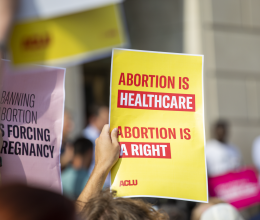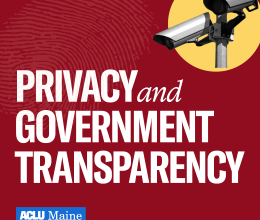
Maine law currently protects abortion access and we're fighting to keep it that way.
The rights to privacy and bodily autonomy are at the core of abortion access. Throughout the country, our bodies have become battlegrounds on these fronts. Privacy and bodily autonomy connect several issues, from abortion and contraception to gender-affirming care and marriage equality. These are all linked by a simple belief: You are the rightful author of your own life story. These rights and freedoms allow us to determine our own paths and thrive on our terms.
More than forty years ago, the U.S. Supreme Court decided Roe v. Wade, the landmark case that secured the right to abortion. In June 2022, the court overturned Roe with its decision in Dobbs v. Jackson Women’s Health Organization. This effectively eliminated the federal right to abortion and allowed states to enact extreme bans.
Abortion remains legal in Maine, but our state is vulnerable to the everchanging winds of politics in the absence of federal protections. Dobbs has emboldened Maine’s anti-abortion politicians to push legislation that would strip people of their right to make personal reproductive health decisions, but we're working alongside our partners to defeat this legislation and protect abortion access.






